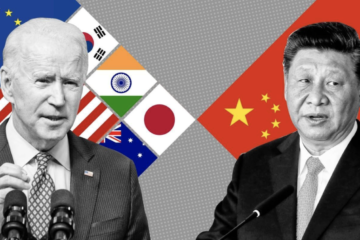When it came to negotiating with the Iranian regime about its nuclear adventures, China had the most leverage. That is, economically China was the only country still willing to develop Iran’s vital oil and gas fields. In 2014, China accounted for close to 40 percent of total Iranian oil exports. Militarily, China delivered around 70 percent of all weapons imported by Iran in 2012, 2014 and 2015. Moreover, strategically, China’s permanent Security Council seat was the last line of defence shielding Iran from severer United Nations resolutions and more invasive sanctions. Beijing provided the lifeline keeping the ayatollahs afloat in the face of immense Western pressure. Therefore, for the United States, achieving the cooperation of China’s top leadership was key to getting Tehran around the table.
Fortunately for the Obama Administration, there were incentives for China to become more involved. During the days of the Iran nuclear negotiations, the credo of China’s former paramount leader Deng Xiaoping to conceal our capabilities, and cherish obscurity in all matters foreign policy still echoed with Chinese leaders. China’s association with the Iranian state starkly contrasted its claim to have become a responsible leading stakeholder of the global political order. It put an unfavourable spotlight on China. On top of that, as the 500 billion plus USD Sino-American trade relationship dwarfed Sino-Iranian total commercial ties of around 50 billion USD in 2014, China’s profitable relationship with Iran was not without risk of provoking American sanctions. The Chinese leadership, hence, had several reasons not to grant Iran a blank cheque of support.
Consequently, China aided the United States in its goal of pushing Iran towards a deal. China decreased Iran’s share of its total oil imports to around eight percent in 2012, and supported multiple UN resolutions condemning Iran for its hidden nuclear facilities as well as its noncompliance with commitments to the International Atomic Energy Agency between 2005 and 2010. This multilateral diplomatic effort eventually resulted in the signing of the Iranian Nuclear Deal in the summer of 2015.
Now that Trump has decertified Iranian compliance with (parts of) the deal, Beijing might soon find itself in the crossfire of another American-Iranian standoff. Yet for the Americans, the China of President Xi’s second-term might prove more difficult to negotiate with than that of ten, five, or even just three years ago.
In the event that the United States does unilaterally pull out of the Iran Nuclear Deal, Trump will not only find the European Union in his way: he will also run into a more resolute President Xi. The deal the United States currently has with Iran reflects the previous balance of power: one characterized by China’s determination not to ruffle too many feathers. President Trump should therefore carefully consider the consequences of pulling out of the Iran Nuclear Deal entirely. The political reality of either a re-negotiated deal, or that of not having a deal at all, might very well reflect a new balance of power: a balance of power marked by a Chinese leadership that no longer fears the limelight.


